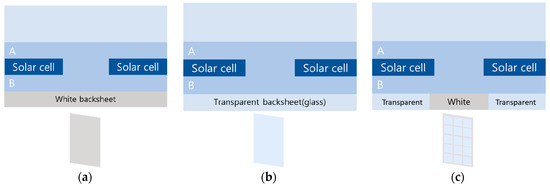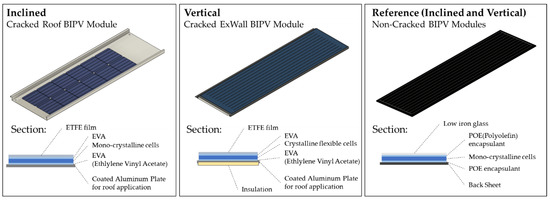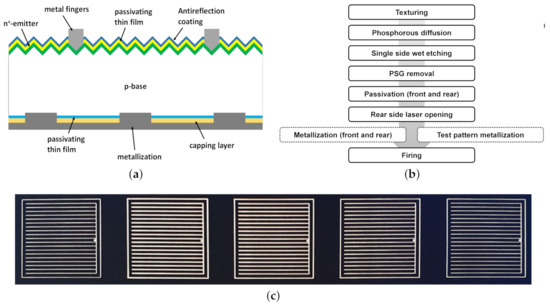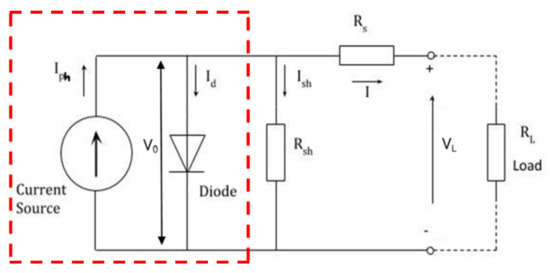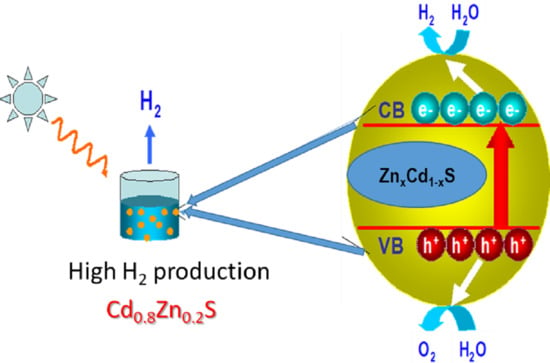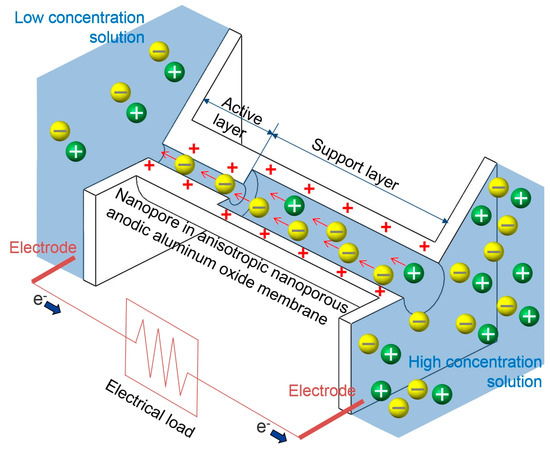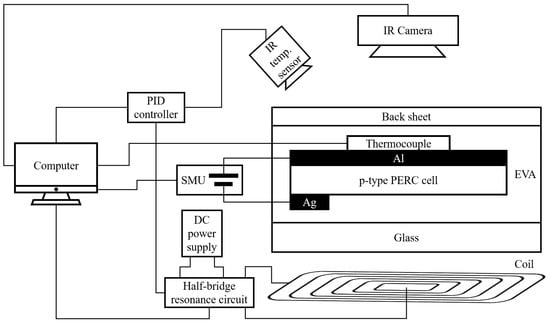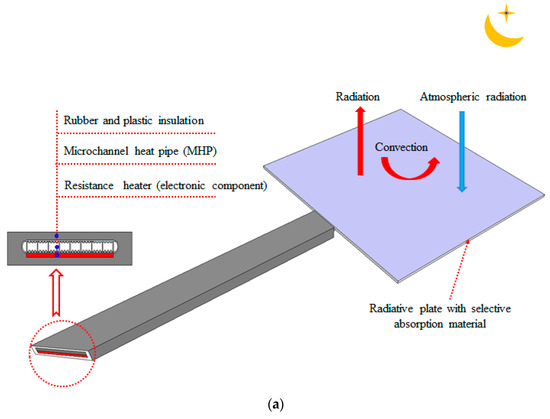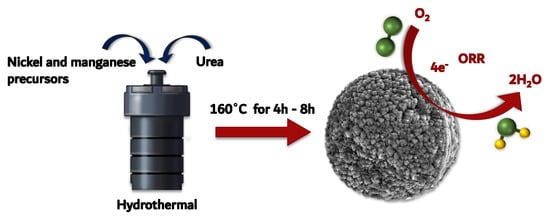Advanced Materials for Energy Conversion and Storage Devices
Share This Topical Collection
Editor
 Prof. Dr. Yongseok Jun
Prof. Dr. Yongseok Jun
 Prof. Dr. Yongseok Jun
Prof. Dr. Yongseok Jun
E-Mail
Website
Guest Editor
Graduate School of Energy and Environment (KU-KIST Green School), Korea University (KU), Seoul 136-713, Korea
Interests: perovskite solar cells; dye-sensitized solar cells; photoelectrochemistry; electrochemistry; optoelectronic materials; energy storage devices
Special Issues, Collections and Topics in MDPI journals
Topical Collection Information
Dear Colleagues,
Energy-related issues have been of concern due to the overconsumption of non-renewable energy sources along with the ever-increasing human population. With the possible depletion of non-renewable energy resources in the near future, researchers have focused on various sustainable energy conversion devices, such as solar cells, fuel cells, windmills, and hydropower stations, to name but a few. Due to the intermittent nature of many different renewable energy sources, efficient energy storage devices play a key role in this cycle of sustainable energy-harvesting process to end-user. Concerning energy storage devices, batteries and supercapacitors play a vital role. Chemical energy stored in the form of hydrogen, ethanol, methanol, etc., also plays an important role, and can be used as fuels in fuel cells. This Special Issue covers the significance of advanced materials for various sustainable energy conversion and storage technologies, including, but not limited to:
- Advanced rechargeable batteries: metal–ion, metal–air, and redox flow batteries;
- Supercapacitors and hybrid capacitors and supercapatteries;
- Energy conversion devices—fuel cells, water electrolyzer, solar cells;
- Chemical energy storage—CO2 reduction, hydrogen generation and storage;
- Thermoelectric and thermoelectrochemical cells;
- Piezoelectric and self-charging devices.
Articles selected for this Special Issue are subject to a rigorous peer review procedure with the aim of rapid and wide dissemination of research results, developments, and applications. We are writing to invite you to submit your original work/review articles/perspectives to this Special Issue. We look forward to receiving your outstanding research findings.
Prof. Dr. Yongseok Jun
Guest Editor
Manuscript Submission Information
Manuscripts should be submitted online at www.mdpi.com by registering and logging in to this website. Once you are registered, click here to go to the submission form. Manuscripts can be submitted until the deadline. All submissions that pass pre-check are peer-reviewed. Accepted papers will be published continuously in the journal (as soon as accepted) and will be listed together on the collection website. Research articles, review articles as well as short communications are invited. For planned papers, a title and short abstract (about 250 words) can be sent to the Editorial Office for assessment.
Submitted manuscripts should not have been published previously, nor be under consideration for publication elsewhere (except conference proceedings papers). All manuscripts are thoroughly refereed through a single-blind peer-review process. A guide for authors and other relevant information for submission of manuscripts is available on the Instructions for Authors page. Energies is an international peer-reviewed open access semimonthly journal published by MDPI.
Please visit the Instructions for Authors page before submitting a manuscript.
The Article Processing Charge (APC) for publication in this open access journal is 2600 CHF (Swiss Francs).
Submitted papers should be well formatted and use good English. Authors may use MDPI's
English editing service prior to publication or during author revisions.
Keywords
- Energy conversion and storage
- Batteries
- Supercapacitors
- Solar cells
- Fuel cells
- Water electrolysis
- Thermoelectric cells
- Piezoelectric devices
Published Papers (17 papers)
Open AccessEditor’s ChoiceArticle
Electrochemical Performance of a Hybrid NiCo2O4@NiFelt Electrode at Different Operating Temperatures and Electrolyte pH
by
Ataollah Niyati, Arianna Moranda, Pouya Beigzadeh Arough, Federico Maria Navarra and Ombretta Paladino
Cited by 5 | Viewed by 1952
Abstract
Transition metals such as nickel and cobalt as an alternative to Pt and Pd can be used for oxygen evolution reactions (OERs) and hydrogen production reactions (HERs) in alkaline environments, facilitating green hydrogen production as a sustainable alternative to fossil fuels. In this
[...] Read more.
Transition metals such as nickel and cobalt as an alternative to Pt and Pd can be used for oxygen evolution reactions (OERs) and hydrogen production reactions (HERs) in alkaline environments, facilitating green hydrogen production as a sustainable alternative to fossil fuels. In this study, an NiCo
2O
4 catalyst was produced by a sono-hydrothermal method using urea as a hydrolysis agent. The electrochemical performance of the catalyst-coated NiFelt electrode was evaluated at different KOH concentrations (0.25, 0.5, and 1 M) and four operating temperatures in the interval of 20–80 °C. The electrode characteristics were investigated via electrochemical spectroscopy (cyclic voltammetry, EIS, multistep chronopotentiometry, multistep chronoamperometry) using two different reference electrodes (Ag/AgCl and Hg/HgO), to obtain insight into the anodic and cathodic peaks. XRD, SEM, EDS, and TEM analyses confirmed the purity, structure, and nanoscale particle size (20–45 nm) of the NiCo
2O
4 catalyst. The electrode showed symmetric CV with Ag/AgCl, making this reference electrode more appropriate for capacitance measurements, while Hg/HgO proved advantageous for EIS in alkaline solutions due to reduced noise. The overpotential of the catalyst-coated NiFelt decreased by 108 mV at 10 mA/cm
2 compared to bare NiFelt, showing a good potential for its application in anion exchange membranes and alkaline electrolyzers at an industrial scale.
Full article
►▼
Show Figures
Open AccessArticle
Structure and Thermoelectric Characterization of p-Type SnTe Nanobulk Material Synthesized by Charge Compensation Chemical Reaction
by
Ryosuke Fujiwara, Yuta Ikeda, Takuto Kawaguchi, Yohei Takashima, Takaaki Tsuruoka and Kensuke Akamatsu
Cited by 2 | Viewed by 1915
Abstract
SnTe is the most widely studied p-type thermoelectric (TE) alternative to PbTe. In this study, we prepared a nanostructured SnTe bulk material via spark plasma sintering from a precursor synthesized by a chemical precipitation process without using organic molecules. The sintered sample comprised
[...] Read more.
SnTe is the most widely studied p-type thermoelectric (TE) alternative to PbTe. In this study, we prepared a nanostructured SnTe bulk material via spark plasma sintering from a precursor synthesized by a chemical precipitation process without using organic molecules. The sintered sample comprised tiny grains (100–300 nm) with high-density grain boundaries. Eventually, because the material would contain no impurities acting as scattering nodes of charge carriers, the material exhibited a relatively high electrical conductivity of 7.07 × 10
5 Sm
−1 at 310 K. The material demonstrated low lattice thermal conductivity (0.87 Wm
−1K
−1 at 764 K), which can be owing to the increasing phonon scattering at grain boundaries. The maximum
ZT was 0.31 at 764 K in the measured temperature range. This study provides a method for the design of phase-pure and surfactant-free SnTe thermoelectric materials that exhibit low lattice thermal conductivity and high carrier mobility using a chemical synthetic approach.
Full article
►▼
Show Figures
Open AccessArticle
Performance Analysis of Bifacial PV Modules with Transparent Mesh Backsheet
by
Juhee Jang, Andrea Pfreundt, Max Mittag and Kyungsoo Lee
Cited by 15 | Viewed by 5360
Abstract
Due to their transparent rear side, bifacial modules can take advantage of rear side irradiance as opposed to monofacial modules. Glass or transparent backsheets are conventionally used as rear side encapsulation material. To increase coupling gains achieved through internal reflection at the module
[...] Read more.
Due to their transparent rear side, bifacial modules can take advantage of rear side irradiance as opposed to monofacial modules. Glass or transparent backsheets are conventionally used as rear side encapsulation material. To increase coupling gains achieved through internal reflection at the module rear side, a white or reflecting mesh structure can be applied in the areas between the cells on the rear side material. In this study, an existing optical model based on a simplified ray tracing approach is extended to describe the effects achieved though this mesh structure. The model is further integrated into a complete cell-to-module loss and gain analysis. The performance of the mesh backsheet concept is assessed under varying parameters. The impact of mesh reflectance, bifaciality of the cell and width of the mesh compared to the cell spacing are investigated. Losses due to increased module temperature and gains due to internal reflection gains are compared. We confirm that the optimal power gain can be achieved when the width of the mesh is the same as the spacing between the cells. We find that the power gain due to the improved internal reflection outweighs the power loss due to increased module temperature.
Full article
►▼
Show Figures
Open AccessArticle
The Impact of Cracks in BIPV Modules on Power Outputs: A Case Study Based on Measured and Simulated Data
by
Kyung-Woo Lee, Hyo-Mun Lee, Ru-Da Lee, Dong-Su Kim and Jong-Ho Yoon
Cited by 10 | Viewed by 4229
Abstract
Crack issues afflicting a building integrated photovoltaics (BIPV) system are major concerns in terms of the system’s maintenance and power degradation. Although there may be many circumstances that bring about cracks in BIPV modules during the installation process, identifying the degradation of PV
[...] Read more.
Crack issues afflicting a building integrated photovoltaics (BIPV) system are major concerns in terms of the system’s maintenance and power degradation. Although there may be many circumstances that bring about cracks in BIPV modules during the installation process, identifying the degradation of PV module efficiency resulting from the effects of cracks tends to be a very difficult task unless actual indoor or outdoor tests or detailed electroluminescence imaging tests are conducted. Many current studies have demonstrated that cracks may or may not impact the output performance of PV modules depending on the damage levels or where the damage is located. For BIPV applications such as replacement for building materials, there is still a lack of information and case studies addressing crack issues in a quantitative manner for evaluating BIPV output performance. Therefore, the objectives of this study are to investigate the effects of cracks in BIPV modules on power outputs and to identify detailed relationships between the cracks and power output based on experimental and simulated analysis. An experimental facility located in Daejeon, South Korea, was used to gather data from cracked and non-cracked BIPV modules. By using the field-measured data and facility’ information, a simulation model was developed using SolarPro software, and a simulated-based analysis was conducted to evaluate the impact of cracks in BIPV modules on output values after proper validation of the model. The results from this study reveal that cracks in BIPV modules exhibit significant degradation in BIPV modules’ outputs of up to 43% reduction during the experimental period. From the annual comparative results, output degradations of 34.6–35.4% were estimated when the BIPV modules included cracks. As a result, the cracks in the BIPV modules could be carefully addressed as issues occurring in the BIPV installation process.
Full article
►▼
Show Figures
Open AccessArticle
Numerical Simulation Analysis of Ag Crystallite Effects on Interface of Front Metal and Silicon in the PERC Solar Cell
by
Myeong Sang Jeong, Yonghwan Lee, Ka-Hyun Kim, Sungjin Choi, Min Gu Kang, Soo Min Kim and Hee-eun Song
Cited by 7 | Viewed by 2832
Abstract
In the fabrication of crystalline silicon solar cells, the contact properties between the front metal electrode and silicon are one of the most important parameters for achieving high-efficiency, as it is an integral element in the formation of solar cell electrodes. This entails
[...] Read more.
In the fabrication of crystalline silicon solar cells, the contact properties between the front metal electrode and silicon are one of the most important parameters for achieving high-efficiency, as it is an integral element in the formation of solar cell electrodes. This entails an increase in the surface recombination velocity and a drop in the open-circuit voltage of the solar cell; hence, controlling the recombination velocity at the metal-silicon interface becomes a critical factor in the process. In this study, the distribution of Ag crystallites formed on the silicon-metal interface, the surface recombination velocity in the silicon-metal interface and the resulting changes in the performance of the Passivated Emitter and Rear Contact (PERC) solar cells were analyzed by controlling the firing temperature. The Ag crystallite distribution gradually increased corresponding to a firing temperature increase from 850
C to 950
C. The surface recombination velocity at the silicon-metal interface increased from 353 to 599 cm/s and the open-circuit voltage of the PERC solar cell decreased from 659.7 to 647 mV. Technology Computer-Aided Design (TCAD) simulation was used for detailed analysis on the effect of the surface recombination velocity at the silicon-metal interface on the PERC solar cell performance. Simulations showed that the increase in the distribution of Ag crystallites and surface recombination velocity at the silicon-metal interface played an important role in the decrease of open-circuit voltage of the PERC solar cell at temperatures of 850–900
C, whereas the damage caused by the emitter over fire was determined as the main cause of the voltage drop at 950
C. These results are expected to serve as a steppingstone for further research on improvement in the silicon-metal interface properties of silicon-based solar cells and investigation on high-efficiency solar cells.
Full article
►▼
Show Figures
Open AccessArticle
A Method to Improve the Accuracy of Simulation Models: A Case Study on Photovoltaic System Modelling
by
Aekkawat Bupi, Songkiate Kittisontirak, Perawut Chinnavornrungsee, Sasiwimon Songtrai, Phassapon Manosukritkul, Kobsak Sriprapha, Wisut Titiroongruang and Surasak Niemcharoen
Cited by 2 | Viewed by 2355
Abstract
This research presents a method to improve data accuracy for the more efficient data management of the studied applications. The data accuracy was improved using the preciseness function learning model (PFL model). It contains a database in which the amount of data is
[...] Read more.
This research presents a method to improve data accuracy for the more efficient data management of the studied applications. The data accuracy was improved using the preciseness function learning model (PFL model). It contains a database in which the amount of data is more or less dependent on all of the possible behavior of the studied application. The proposed model improves data with functions obtained by optimizing curves to represent the data at each point, which estimate the database’s diffusion behavior, and functions can be built around all of the various forms of databases. The proposed model always updates its database after processing. It has been learning to optimize the processing precision. In order to verify the precision of the proposed model through its application to a PV system simulation model, the process’s database should contain at least one year. This is because the overall behavior of the PV power output in Thailand depends on the seasonal weather; Thailand has three seasons in a period of one year. The testing was performed by comparing the PV power output. The simulation results with the actual measurement data (12 MW PV system) can be divided into two conditions: the daily comparison and the seasonal PV power output. As a result, the proposed model can accurately simulate the PV power output despite the sudden daily climate change. The average nRMSE (normalized RMSE) of the proposed model is very low (1.23%), and ranges from 0.30% to 2.26%. Therefore, it has been proven that this model is very accurate.
Full article
►▼
Show Figures
Open AccessArticle
Theoretical Investigations of the BaRh2Ge4X6 (X = S, Se, Te) Compounds
by
Pascal Boulet and Marie-Christine Record
Viewed by 2090
Abstract
The thermoelectric (TE) properties of the BaM
2Ge
4X
6 compounds, where M = Rh and X = S, Se, Te, were investigated by computational approaches using density-functional theory and semi-classical Boltzmann theory for electronic transport. It was found that these
[...] Read more.
The thermoelectric (TE) properties of the BaM
2Ge
4X
6 compounds, where M = Rh and X = S, Se, Te, were investigated by computational approaches using density-functional theory and semi-classical Boltzmann theory for electronic transport. It was found that these compounds bear good TE properties, in particular BaRh
2Ge
4Te
6, for which the figure of merit was estimated to reach 1.51 at 300 K. As this compound has not yet been proved to be stable, we also investigated BaRh
2Ge
4S
4Te
2 by assuming that replacing tellurium by sulphur could stabilize the tellurium-containing structure. It was found that the TE properties are good. The quantum theory of atoms in molecules was used to investigate the nature of the chemical interactions that prevail in these compounds. A wide variety of interactions were evidenced, from van der Waals interactions to ionic and polar-covalent ones, which could explain the good TE performance of these compounds.
Full article
►▼
Show Figures
Open AccessArticle
Structural, Optical and Photocatalytic Characterization of ZnxCd1−xS Solid Solutions Synthetized Using a Simple Ultrasonic Radiation Method
by
Luis Fernando Morelos Medina, Rufino Nava, María de los Ángeles Cuán Hernández, Omar Said Yáñez Soria, Bárbara Pawelec, Rufino M. Navarro and Carlos Elías Ornelas Gutiérrez
Cited by 7 | Viewed by 3201
Abstract
A simple ultrasonic radiation method was employed for the preparation of zinc and cadmium sulfide solid solution (Zn
xCd
1−xS; x = 0–0.25 wt.%) with the aim to investigate its efficiency for H
2 production via a visible light-driven water-splitting reaction.
[...] Read more.
A simple ultrasonic radiation method was employed for the preparation of zinc and cadmium sulfide solid solution (Zn
xCd
1−xS; x = 0–0.25 wt.%) with the aim to investigate its efficiency for H
2 production via a visible light-driven water-splitting reaction. The catalyst characterization by X-ray diffraction confirmed the formation of solid solution (Zn
xCd
1−xS) between CdS and ZnS phases. All catalysts exhibited hierarchical morphology (from SEM and TEM) formed by aggregated nanoparticles of Zn
xCd
1−xS solid solution with crystals showing mainly (111) planes of cubic CdS phase. The crystal size linearly decreased with an increase in Zn incorporation in the crystal lattice (from 4.37 nm to 3.72 nm). The Zn
xCd
1−xS photocatalysts showed a gradual increase in the H
2 evolution, with an increase in the Zn concentration up to 0.2 wt.% making the most effective Zn
0.2Cd
0.8S catalyst toward H
2 production. From the catalyst activity–structure correlation, it has been concluded that the twin-like CdS structure, the (111) plane and specific morphology are the main factors influencing the catalyst effectivity toward H
2 production. All those factors compensated for the negative effect of an increase in band gap energy (
Ebg) after ZnS incorporation into solid solution (from 2.21 eV to 2.34 eV). The effect of the catalyst morphology is discussed by comparing H
2 evolution over unsupported and supported Zn
0.2Cd
0.8S solid solutions.
Full article
►▼
Show Figures
Open AccessArticle
Power Generation from Concentration Gradient by Reverse Electrodialysis in Anisotropic Nanoporous Anodic Aluminum Oxide Membranes
by
Yunhyun Lee, Hyun Jung Kim and Dong-Kwon Kim
Cited by 15 | Viewed by 4677
Abstract
In this study, reverse electrodialysis power generation using an anisotropic anodic aluminum oxide membrane with nanopores of two different pore diameters is proposed and experimentally investigated for the first time. A number of experiments were carried out for various combinations of concentrations to
[...] Read more.
In this study, reverse electrodialysis power generation using an anisotropic anodic aluminum oxide membrane with nanopores of two different pore diameters is proposed and experimentally investigated for the first time. A number of experiments were carried out for various combinations of concentrations to show that the anisotropic anodic aluminum oxide membrane is superior to the conventional isotropic membrane. As a result, the highest power density that was measured from the anisotropic membrane was 15.0 mW/m
2, and it was 7.2 times higher than that from the isotropic membrane. The reasons why the anisotropic membrane is superior to the isotropic membrane are explained in detail. The experiments on the anisotropic membranes with various active layer lengths and pore diameters were also conducted for exploring the effects of these engineering parameters on the power generation performance. As a result, it was shown that the length of the active layer is a more important engineering parameter than the pore diameter of the active layer. Additionally, it was also shown that a low concentration solution should be brought into contact with the active layer side of the membrane whenever an anisotropic membrane is used for reverse electrodialysis.
Full article
►▼
Show Figures
Open AccessArticle
Properties of Thermally Evaporated Titanium Dioxide as an Electron-Selective Contact for Silicon Solar Cells
by
Changhyun Lee, Soohyun Bae, HyunJung Park, Dongjin Choi, Hoyoung Song, Hyunju Lee, Yoshio Ohshita, Donghwan Kim, Yoonmook Kang and Hae-Seok Lee
Cited by 22 | Viewed by 6209
Abstract
Recently, titanium oxide has been widely investigated as a carrier-selective contact material for silicon solar cells. Herein, titanium oxide films were fabricated via simple deposition methods involving thermal evaporation and oxidation. This study focuses on characterizing an electron-selective passivated contact layer with this
[...] Read more.
Recently, titanium oxide has been widely investigated as a carrier-selective contact material for silicon solar cells. Herein, titanium oxide films were fabricated via simple deposition methods involving thermal evaporation and oxidation. This study focuses on characterizing an electron-selective passivated contact layer with this oxidized method. Subsequently, the SiO
2/TiO
2 stack was examined using high-resolution transmission electron microscopy. The phase and chemical composition of the titanium oxide films were analyzed using X-ray diffraction and X-ray photoelectron spectroscopy, respectively. The passivation quality of each layer was confirmed by measuring the carrier lifetime using quasi-steady-state photoconductance, providing an implied open circuit voltage of 644 mV. UV–vis spectroscopy and UV photoelectron spectroscopy analyses demonstrated the band alignment and carrier selectivity of the TiO
2 layers. Band offsets of ~0.33 and ~2.6 eV relative to the conduction and valence bands, respectively, were confirmed for titanium oxide and the silicon interface.
Full article
►▼
Show Figures
Open AccessArticle
SiNW/C@Pt Arrays for High-Efficiency Counter Electrodes in Dye-Sensitized Solar Cells
by
Junhee Kim, Sanghoon Jung, Han-Jung Kim, Yoonkap Kim, Chanyong Lee, Soo Min Kim, Donghwan Kim and Yongseok Jun
Cited by 5 | Viewed by 3667
Abstract
Modern energy needs and the pressing issue of environmental sustainability have driven many research groups to focus on energy-generation devices made from novel nanomaterials. We have prepared platinum nanoparticle-decorated silicon nanowire/carbon core–shell nanomaterials (SiNW/C@Pt). The processing steps are relatively simple, including wet chemical
[...] Read more.
Modern energy needs and the pressing issue of environmental sustainability have driven many research groups to focus on energy-generation devices made from novel nanomaterials. We have prepared platinum nanoparticle-decorated silicon nanowire/carbon core–shell nanomaterials (SiNW/C@Pt). The processing steps are relatively simple, including wet chemical etching to form the silicon nanowires (SiNWs), chemical vapor deposition to form the carbon shell, and drop-casting and thermal treatment to embed platinum nanoparticles (Pt NPs). This nanomaterial was then tested as the counter electrode (CE) in dye-sensitized solar cells (DSSCs). SiNW/C@Pt shows potential as a good electrocatalyst based on material characterization data from Raman spectroscopy and X-ray photoelectron spectroscopy (XPS). Raman spectroscopy shows that the surface reactivity of the SiNW/C is increased by the decoration of Pt NPs. These data also show that the carbon shell included both graphitic (sp
hybridization) and defective (sp
hybridization) phases of carbon. We achieved the minimum charge-transfer resistance of 0.025
· cm
and the maximum efficiency of 9.46% with a symmetric dummy cell and DSSC device fabricated from the SiNW/C@Pt CEs, respectively.
Full article
►▼
Show Figures
Open AccessArticle
Anti-LID Process with a Remote Direct Heating Method Using a Half-Bridge Resonance Circuit for a PERC Solar Cell Module
by
Soo Min Kim, Sanghoon Jung, Yoonkap Kim and Junhee Kim
Cited by 32 | Viewed by 3161
Abstract
As the importance of the levelized cost of electricity (LCOE) increases in the solar cell industry, the demand for high-efficiency solar cells is rapidly increasing. Typically, p-type passivated emitter rear contact (PERC) solar cells are the most commonly used in the industry, and
[...] Read more.
As the importance of the levelized cost of electricity (LCOE) increases in the solar cell industry, the demand for high-efficiency solar cells is rapidly increasing. Typically, p-type passivated emitter rear contact (PERC) solar cells are the most commonly used in the industry, and their efficiency is approximately 22–23%. P-type solar cells are reported to exhibit a light-induced degradation (LID) phenomenon, in which their output constantly decreases during power generation under solar radiation, and the output significantly reduces as their reference efficiency increases. Ultra-high-efficiency solar cells, which are on high demand, have a considerable output reduction due to the LID phenomenon; hence, technologies to prevent the LID phenomenon are required. However, research on this phenomenon has not been conducted because there is no method to transfer heat to solar cells inside the encapsulant when the modules are produced. In this study, a regeneration state was formed by remotely heating solar cells without damaging the encapsulant of the solar cell module. This was accomplished by using a heating method based on an induction magnetic field. A half-bridge resonance circuit was used to apply the induction magnetic field, and the temperature of the solar cell was controlled by adjusting the magnitude of the current flowing through the coil. To determine whether only the solar cell was heated, the temperature distribution inside the module was analyzed using an IR camera. The minority carrier lifetime was examined by real-time observation of the open-circuit voltage pattern of the solar cell. Finally, the observed real-time open-circuit voltage data were used, and dynamic simulation of the regeneration process was applied to analyze the LID activation energy generated in the regeneration process of the solar cell module. In conclusion, research was conducted on applying the regeneration state to prevent the LID phenomenon in the solar-cell-module stage, and the LID activation energy of the solar cell module was extracted. Based on this, a nondestructive degradation prevention technology for the solar cell module was developed.
Full article
►▼
Show Figures
Open AccessArticle
Numerical and Experimental Study on the Heat Dissipation Performance of a Novel System
by
Cairui Yu, Dongmei Shen, Qingyang Jiang, Wei He, Hancheng Yu, Zhongting Hu, Hongbing Chen, Pengkun Yu and Sheng Zhang
Cited by 6 | Viewed by 3258
Abstract
In order to better release the heat generated by the electronic components, a novel heat dissipation system is proposed, which combines a microchannel heat pipe (MHP) with a high thermal conductivity and a radiative plate with a high emissivity at nighttime. First, a
[...] Read more.
In order to better release the heat generated by the electronic components, a novel heat dissipation system is proposed, which combines a microchannel heat pipe (MHP) with a high thermal conductivity and a radiative plate with a high emissivity at nighttime. First, a simple testing rig was made with an MHP and a radiative plate, where the radiative plate was made of acrylic resin, a curing agent, thinner, and aluminum plate, and had strong radiative cooling at nighttime. Second, the mathematical model was initially established and verified using experiments, where it was shown that the agreement between numerical and experimental data was well within experimental uncertainties. Comprehensive simulation investigations were conducted by varying wind speed, relative humidity, the cloudiness coefficient, dimension of the radiative plate, and tilted angle. The results show that: (1) the emissivity of the radiative plate was about 0.311 in the daytime and about 0.908 in the nighttime; (2) the influence of wind speed on reducing the component surface temperature was greater than the cloudiness coefficient and relative humidity; (3) the width of the radiative plate had a greater effect on heat dissipation than on its length, and the maximum size of radiative plate was recommended to be 400 mm × 400–500 mm (length × width), which was equipped with a single MHP (width: 60 mm). Additionally, the tilted angle of the radiative plate should be kept within 30° of the horizontal level. In conclusion, the novel heat dissipation system had a superior application value for providing assisted electronic component cooling in the nighttime.
Full article
►▼
Show Figures
Open AccessArticle
Hydrothermal Synthesis of Three-Dimensional Perovskite NiMnO3 Oxide and Application in Supercapacitor Electrode
by
Hyo-Young Kim, Jeeyoung Shin, Il-Chan Jang and Young-Wan Ju
Cited by 68 | Viewed by 9167
Abstract
Supercapacitors are attractive as a major energy storage device due to their high coulombic efficiency and semi-permanent life cycle. Transition metal oxides are used as electrode material in supercapacitors due to their high conductivity, capacitance, and multiple oxidation states. Nanopowder transition metal oxides
[...] Read more.
Supercapacitors are attractive as a major energy storage device due to their high coulombic efficiency and semi-permanent life cycle. Transition metal oxides are used as electrode material in supercapacitors due to their high conductivity, capacitance, and multiple oxidation states. Nanopowder transition metal oxides exhibit low specific surface area, ion diffusion, electrical conductivity, and structural stability compared with the three-dimensional (3D) structure. Furthermore, unstable performance during long-term testing can occur via structural transition. Therefore, it is necessary to synthesize a transition metal oxide with a high specific surface area and a stable structure for supercapacitor application. Transition metal oxides with a perovskite structure control structural transition and improve conductivity. In this study, a NiMnO
3 perovskite oxide with a high specific surface area and electrochemical properties was obtained via hydrothermal synthesis at low temperature. Hydrothermal synthesis was used to fabricate materials with an aqueous solution under high temperature and pressure. The shape and composition were regulated by controlling the hydrothermal synthesis reaction temperature and time. The synthesis of NiMnO
3 was controlled by the reaction time to alter the specific surface area and morphology. The prepared perovskite NiMnO
3 oxide with a three-dimensional structure can be used as an active electrode material for supercapacitors and electrochemical catalysts. The prepared NiMnO
3 perovskite oxide showed a high specific capacitance of 99.03 F·g
−1 and excellent cycle stability with a coulombic efficiency of 77% even after 7000 cycles.
Full article
►▼
Show Figures
Open AccessArticle
Binder-Free Centimeter-Long V2O5 Nanofibers on Carbon Cloth as Cathode Material for Zinc-Ion Batteries
by
Lyn Marie De Juan-Corpuz, Ryan Dula Corpuz, Anongnat Somwangthanaroj, Mai Thanh Nguyen, Tetsu Yonezawa, Jianmin Ma and Soorathep Kheawhom
Cited by 49 | Viewed by 6199
Abstract
Recently, rechargeable aqueous zinc-ion batteries (AZBs) have attracted extensive interest due to their safety, abundance, low cost, and low toxicity. However, aqueous electrolytes require a polymeric binder to prevent dissolution of the active material in addition to its binding properties. This study highlights
[...] Read more.
Recently, rechargeable aqueous zinc-ion batteries (AZBs) have attracted extensive interest due to their safety, abundance, low cost, and low toxicity. However, aqueous electrolytes require a polymeric binder to prevent dissolution of the active material in addition to its binding properties. This study highlights binder-free, centimeter long, single-crystal, V
2O
5 nanofibers (BCS-VONF) on carbon cloth, as the cathode material for AZBs synthesized via a simple one-step hydrothermal process. BCS-VONF in 3.0 M Zn(OTf)
2 exhibit promising electrochemical performance with excellent capacity retention. Even in the absence of a binder, BCS-VONF were found to be very stable in 3.0 M Zn(OTf)
2. They will not yield to the dissolution and detachment of the active material on the current collector. The novel strategy described in this study is an essential step for the development of BCS-VONF on carbon cloth, as a promising cathode material for AZBs.
Full article
►▼
Show Figures
Open AccessArticle
Cost/Performance Analysis of Commercial-Grade Organic Phase-Change Materials for Low-Temperature Heat Storage
by
Tomáš Hásl, Ivo Jiříček, Michal Jeremiáš, Josef Farták and Michael Pohořelý
Cited by 14 | Viewed by 3853
Abstract
Alkanes are widely used as phase change materials (PCMs), especially for thermal energy storage (TES), due to their high thermal capacity, stability, availability, and non-corrosiveness. However, the drawbacks of alkanes are low heat conductivity and high cost. Our aim was to explore alternative
[...] Read more.
Alkanes are widely used as phase change materials (PCMs), especially for thermal energy storage (TES), due to their high thermal capacity, stability, availability, and non-corrosiveness. However, the drawbacks of alkanes are low heat conductivity and high cost. Our aim was to explore alternative organic PCMs for TES and to compare such compounds based on the relationship between their performance and cost. For this purpose, we analysed several commercially available products, including long chain alkanes, alcohols, monocarboxylic acid, amines, ethers and esters in high purities. Differential scanning calorimetry and thermogravimetry (DSC and TGA) were used to measure the melting point, melting enthalpy and thermal stability of these compounds. The materials were classified according to their melting temperature. In order to compare the compounds, we calculated from the measured enthalpies and the price list provided by producers a coefficient that represents factors in both the performance and cost of the material. This method was used to identify the most suitable organic compound for thermal energy storage in each temperature range. As the main result of this work, it has been revealed that various organic compounds can be considered as a vital alternative to the alkanes in temperatures from −10 to 50 °C. On top of that, alcohols and carboxylic acids can cover the temperature range from 50 to 75 °C, which cannot be covered by alkanes.
Full article
►▼
Show Figures
Open AccessArticle
Adhesion-Increased Carbon Nanowalls for the Electrodes of Energy Storage Systems
by
Hyeokjoo Choi, Seokhun Kwon, Hyunil Kang, Jung Hyun Kim and Wonseok Choi
Cited by 12 | Viewed by 3633
Abstract
Carbon nanowalls (CNWs), which are used as electrodes for secondary batteries in energy storage systems (ESSs), have the widest reaction surface area among the carbon-based nanomaterials, but their application is rare due to their low adhesion with substrates. Indium tin oxide (ITO), a
[...] Read more.
Carbon nanowalls (CNWs), which are used as electrodes for secondary batteries in energy storage systems (ESSs), have the widest reaction surface area among the carbon-based nanomaterials, but their application is rare due to their low adhesion with substrates. Indium tin oxide (ITO), a representative transparent conducting oxide (TCO) material, is widely used as the electrode for displays, solar cells, etc. Titanium nitride (TiN) is a well-used material as an interlayer for improving the adhesion between two materials. In this study, ITO or TiN thin films were used as an interlayer to improve the adhesion between a CNW and a substrate. The interlayer was deposited on the substrate using a radio frequency (RF) magnetron sputtering system with a four-inch TiN or ITO target. CNWs were grown on the interlayer-coated substrate using a microwave-plasma-enhanced chemical vapor deposition (MPECVD) system with a mixture of methane (CH
4) and hydrogen (H
2) gases. The adhesion of the CNW/interlayer/substrate structure was observed through ultrasonic cleaning.
Full article
►▼
Show Figures







